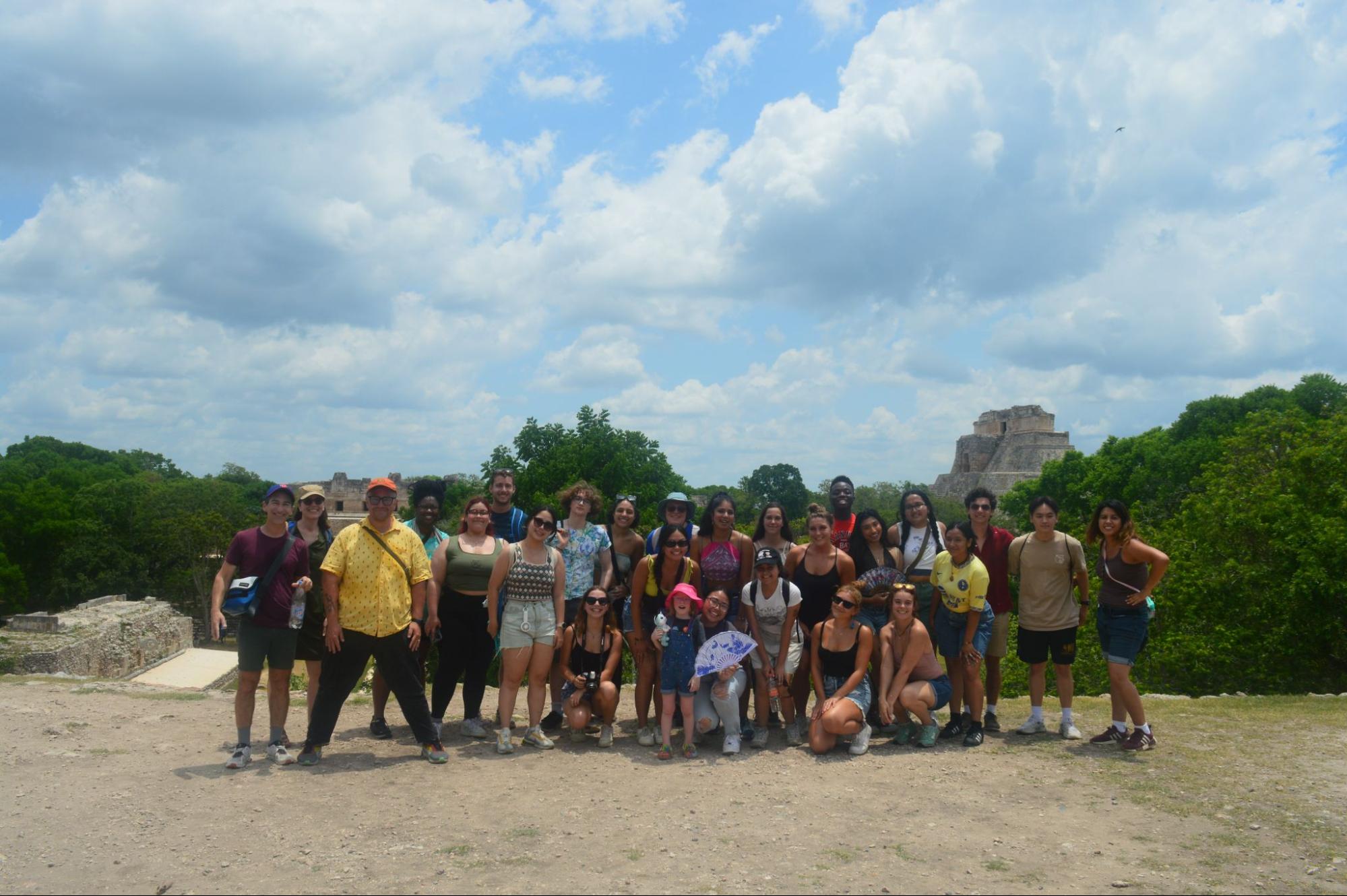Students learn about colonialism and tourism through experiential learning in Temple Honors’ first-ever study abroad program in Merida, Mexico
By Maya Halma, Honors Media Director
Students and faculty pose atop the Uxmal ruins on the Yucatan Peninsula.
This summer, Temple Honors ran its first-ever study abroad program in Merida, Mexico. 25 students embarked on the 4-week trip to the Yucatan region for a unique experiential learning opportunity.
Merida is located a half-hour drive from the coast on the Yucatan Peninsula.
While two course options were offered–“Merida, From Colonialism to Tourism” and “Intellectual Heritage II: The Common Good”–all students learned about how colonialism and tourism have affected and continue to affect Mayan culture and identity. Students attended a discussion-based class twice a week taught by professors Robert Rabiee and Douglas Greenfield. Honors Academic Chair Bryant Simon and advisors Jackie Lopez and Denae Sisco also supported the program. The discussions encouraged students to view the topics with a critical lens. “I wanted students to understand how our hemispheric neighbors view Americans, even if that meant confronting uncomfortable truths about U.S.-Mexico relations,” stated Professor Rabiee of this critical lens.
A building in Merida’s Centro histórico lights up blue.
The course was supplemented with weekly movie screenings, readings and guest lectures by local experts through IFSA, a study abroad service. Students also participated in Spanish classes twice a week taught by local native speakers to help them feel comfortable conversing with members of the community.
While the discussions and guest lectures provided worthy insights, most students cited the excursions as the most valuable learning experience. Students attended four full-day excursions, one overnight excursion and a couple shorter excursions. Destinations ranged from Chichen Itza, a widely popular Mayan ruins site with heavy tourist presence, to Yaxunah, a small, remote, largely indigenous community. Students discussed and questioned the discrepancies between the two excursions and how the effects of tourism manifested differently in each.
One common activity during the excursions was swimming in cenotes, or water-filled craters formed by meteor showers in the Yucatan region. Students also visited museums showcasing Mayan art and history and took part in guided tours of ruins and farms.
Temple students cool off from the heat in Cenote Yokdzonot.
The program utilized a flexible schedule so that students could balance academics with fully experiencing a new country. Because Merida is ranked the second-safest city in North America, students were encouraged to explore the city on their own time with other students. They had the opportunity to enjoy Yucatecan staples like panuchos, or open-faced tacos served on bean-stuffed tostadas, and chaya juice, which is made from a spinach-like plant.
A vegetarian panucho and a spinach & cheese empanada.
They also enjoyed various live music performances and a demonstration of pok ta’pok, a Mayan ball game in which players try to hit the ball through a circle in a post without using their arms or legs. Some students went to the beach in Progreso on the weekends, which is a half-hour drive from Merida.
“This trip was absolutely a worthwhile experience,” commented Siddhi Vinay, a rising junior who studied abroad in Merida. “I was surrounded by the best teachers and most welcoming students, learned about the culture of the Yucatan region, and reflected on what it means to be a tourist.”
Temple Honors plans to consult feedback from the 25 students who went on the trip and run the program again next summer. Registration will open in the Spring. To view more pictures, visit our Flickr. For further insight into the excursions, watch our Merida highlights on Instagram

